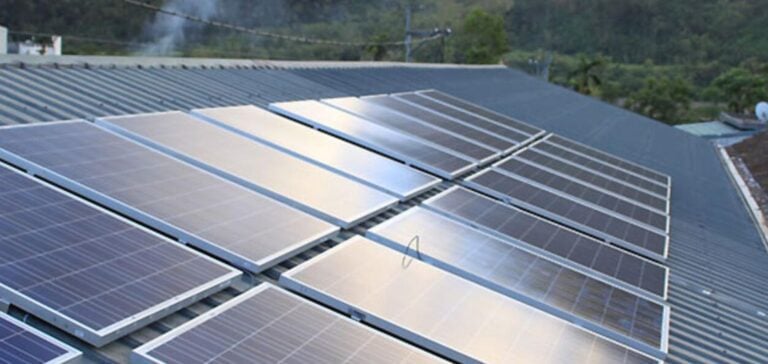South African homeowners’ appetite for investment in alternative energy solutions showed a decline in the second quarter of 2024.
According to a study conducted by Absa Group Ltd, interest in off-grid energy systems has dropped significantly in South Africa.
Kamini Ramsamy, Head of Credit Risk for Home Loans at Absa, explains that this trend is probably due to a recent improvement in energy supply.
Absa’s homeowner sentiment index for the second quarter of 2024 indicates that lower electricity costs remain an important factor, albeit slightly lower than in the first quarter.
Owners cite affordability as the main reason for not installing alternative energy solutions.
Others are confident that energy supplies will improve in the future, thanks in particular to the development of renewable energies.
Eskom’s impact on the energy sector
Two weeks ago, Eskom, the troubled state-owned electricity company, achieved 100 consecutive days without implementing power cuts.
This feat, unprecedented in years of crippling blackouts, was made possible by a significant reduction in the use of open-cycle gas turbines to supplement generation capacity.
However, Eskom continues to struggle to maintain power supplies in Africa’s most industrialized country, causing significant economic damage and social disruption.
Many South Africans, impatient with government inaction, have contributed to an increase in small-scale solar installations, although their high costs reserve them mainly for wealthier households.
Banking Perspectives and Consumer Confidence
Banks have recognized this opportunity and are now offering loans linked to alternative energy solutions.
Absa’s report shows that overall consumer confidence in the South African property market has risen from 82% in Q1 to 84% in Q2 2024, mainly due to the perception of property as a secure asset.
This increase in confidence comes against a backdrop of growing financing options for alternative energy solutions, offering attractive prospects for homeowners looking to reduce their energy costs without resorting to off-grid solutions.
Current trends and bank strategies to promote access to alternative energies are likely to influence homeowners’ decisions in the short to medium term.
It remains to be seen whether Eskom’s improvement in energy supply will be sustainable and sufficient to permanently reverse the current trend.






















